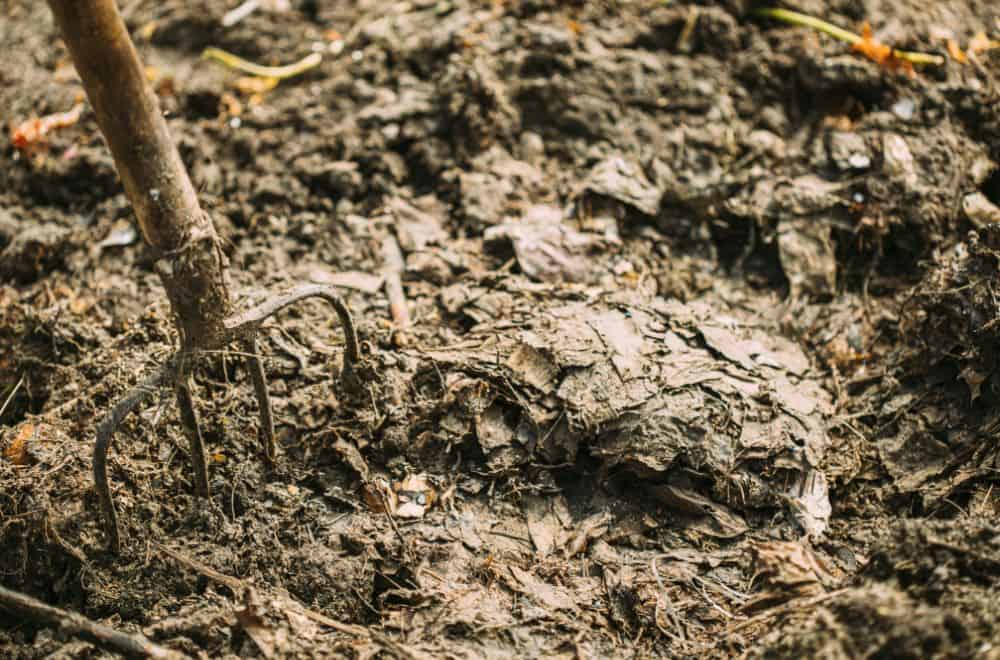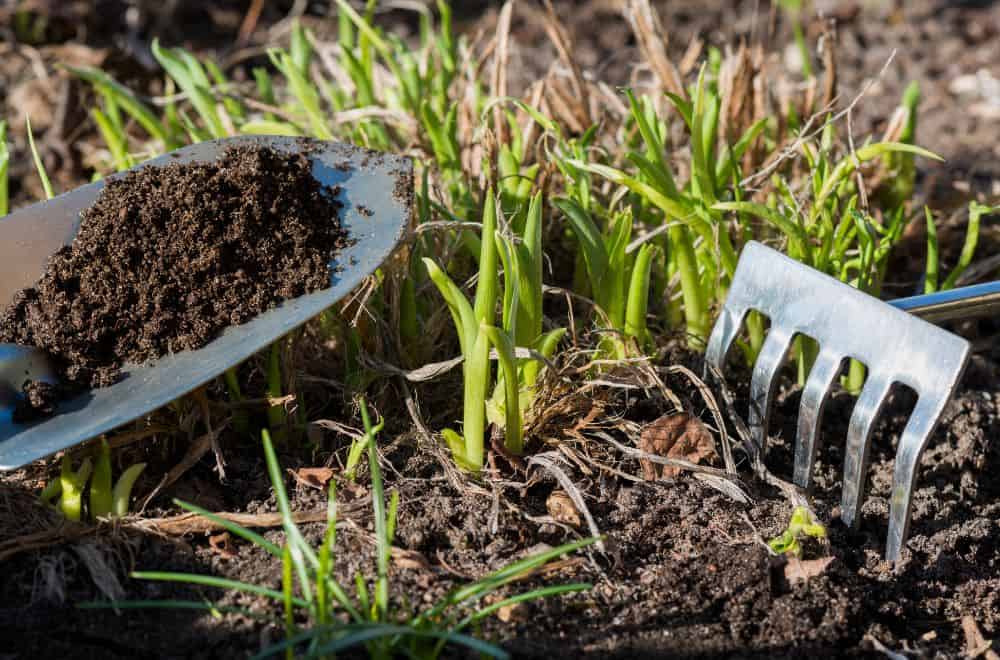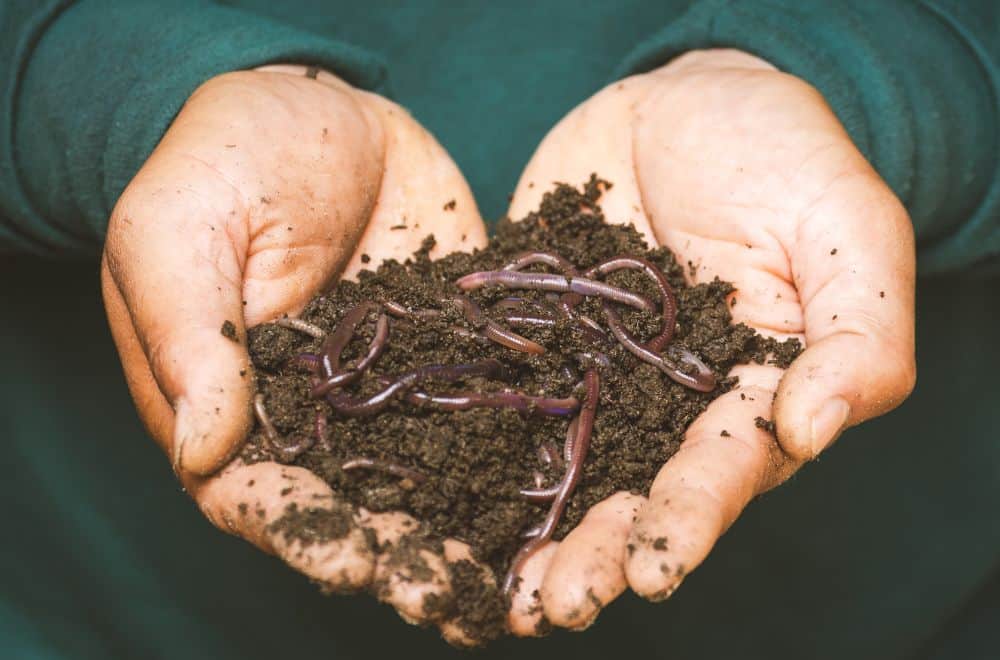Composting reduces waste and adds important nutrients to your lawn, garden, and landscape. If you’ve been composting for very long, you have probably seen the terms “compost” and “humus” interchangeably.
Although you may know that they are not the same thing, you may not have seen an explanation of what is different about these two processes. Without that understanding, it can be hard to know why compost is superior.
Comparing compost VS Humus involves an understanding of the processes that each one involves. Once you know how each material is created, it is easier to understand why compost is preferable.
Compost VS Humus: Formation of the materials

Both compost and humus are formed with decaying organic material. “Organic” means that it contains the element carbon, so organic material usually includes plants material like lawn clippings, dead plants from the landscape, branches pruned or broken out of trees, and uneaten or spoiled fruits and vegetables from the kitchen.
The separation occurs in exactly how that process takes place. In composting, the material decomposes as microorganisms digest the organic material in the presence of oxygen, generating heat as the materials break down. This is known as aerobic decomposition. By contrast, humus is formed by the decomposition of materials without oxygen present. This process is known as anaerobic decomposition, and it can take place in compost. In other words, humus is essentially used-up compost.
In nature, compost is formed by the accumulation of material such as leaves on the forest floor. Composting materials with human intervention involves piling the material in a confined area, then simply allowing the process to take care of itself. The end result is a rich material that is full of available nutrients, released by microbes into the soil for use by plants.
Humus usually forms in swampy areas. The standing water seals out oxygen, creating that anaerobic environment that it takes to form humus. The bacteria and other organisms digest the source material through fermentation. The result is a material composed mostly of carbon with few other nutrients present.
Because anaerobic decomposition is a fermentation process, it has the side effect of creating methane, which has an unpleasant odor and may be linked to climate change. Creating humus at home is usually accomplished by placing the material in a large plastic container, then filling it with water.
Compost vs. humus in using

Not surprisingly, these two materials have very different handling properties. You’ve seen that good compost is typically moist but not wet, making it light enough for easy scooping by hand or with a shovel. It is also ready to use right out of the compost pile, reducing the time required to get it applied and put it to work in the soil.
Once you apply compost, you get a nice response from your plants. The nutrients and carbon present help them to grow, and the material itself helps to aerate the soil. Better aeration permits good drainage of water as well as improved penetration by roots.
Humus is more likely to be in your lawn or garden as a result of the slow decomposition of compost. It retains the carbon that was present in the original compost, but by the time it truly meets the definition of humus, the other nutrients have long since been used up. As a result, compost is an additive for plant nutrition, whereas humus is essentially a byproduct that provides carbon.
That doesn’t mean humus is worthless. It helps retain moisture, which can be very beneficial during dry weather. It also creates an environment where other nutrients can be properly created and stored, then made accessible to plants. Humus is still important, but adding compost yields more immediate benefits and will eventually create enough humus to be useful.
Compost vs. humus in practice

Although it has value in the soil, the odor and high moisture content present problems for humus as a soil additive. One of the most popular locations for reusing plant material is in urban areas.
Subdivisions, dense downtown areas, and condominiums can all be great locations for taking steps to improve the environment. Humus can enhance the growth of plants when added in appropriate amounts, but living in the city means being a good neighbor, too.
While there are similarities in the chemistry of what goes on in the creation of both humus and compost, the side effects are very different. You’re making your compost inside a specialized container or in a simple structure that can be emptied by season’s end and leave no problematic residue of any kind. Composting creates no odor, no runoff, and no methane. Your neighbors probably never even notice that you’re composting, but they’ll notice humus.
Humus creates an unpleasant odor that could disturb neighbors. This smell will become even more obvious when the finished product is used around the lawn or landscape, especially if the material must be aired out to dry before being used.
Humus can be made in a large plastic container filled with water and plant material, but the process will yield a significant amount of black, smelly water that may be hard to dispose of without drawing the ire of neighbors.
Homeowners’ associations and other groups may quickly take issue with the production of humus if it creates such disruptions. Because humus forms naturally anyway, it is more neighborly to feed that process with your compost instead of seeking shortcuts.
Conclusion
Improving the soil is key to getting healthy plants and cleaner soil. The use of organic matter is a key part of this process.
While both materials are beneficial to the health of the soil, choosing between compost VS Humus is an easy decision. The process for creating compost is simpler, cleaner, and less complicated, and the resulting product is much easier to handle.
Because humus will form naturally with the creation and addition of quality compost, it is not necessary to try creating your own humus. Healthy soil will create an adequate supply of humus.

Leave a comment